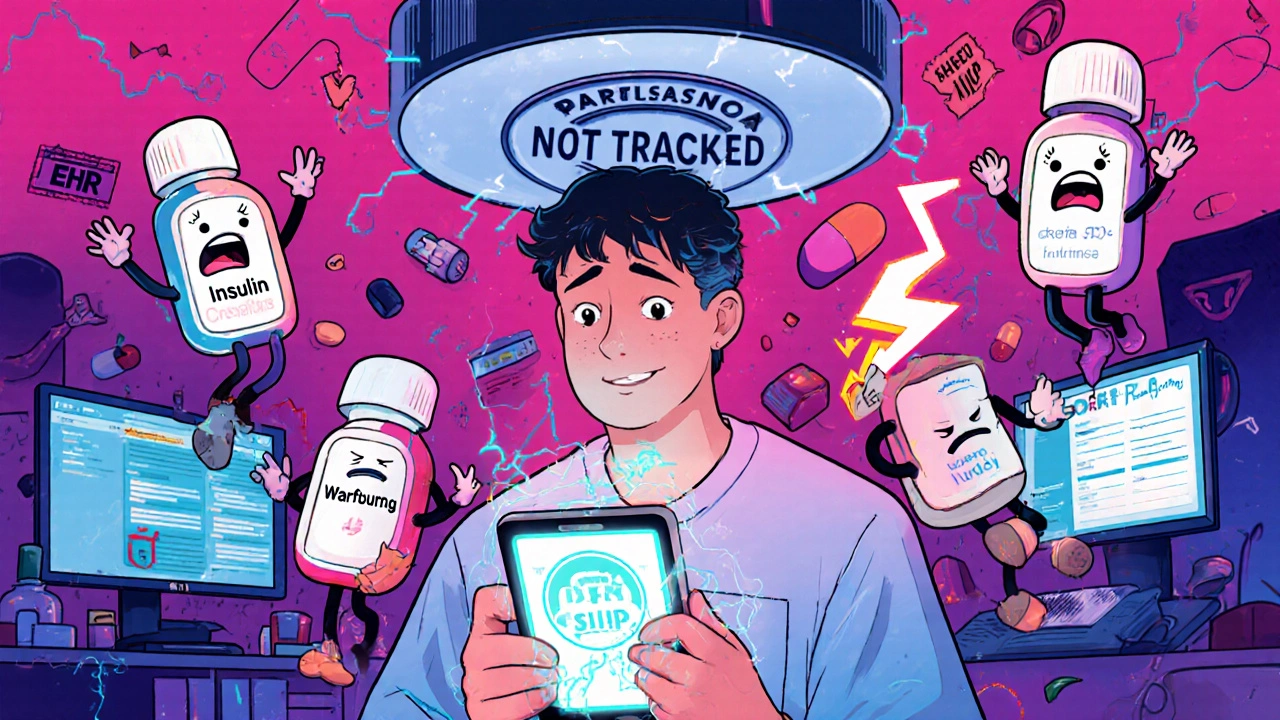Medication Interactions: What You Need to Know Before Taking Multiple Drugs
When you take more than one medication, medication interactions, when two or more drugs affect each other’s action in your body. Also known as drug interactions, they can make a drug work better, worse, or cause unexpected side effects—sometimes life-threatening ones. This isn’t rare. Over half of adults over 65 take five or more medications daily, and even younger people mixing prescription drugs with OTC painkillers, supplements, or alcohol are at risk.
One of the most common dangers is anticholinergic overload, when drugs like tricyclic antidepressants and antihistamines build up in your system and confuse your nervous system. This can lead to confusion, dizziness, or even delirium, especially in older adults. Another serious risk is QT prolongation, a heart rhythm issue triggered by certain antidepressants like citalopram and escitalopram. It’s silent until it’s not—sudden cardiac events can follow without warning. Then there’s polypharmacy, the use of multiple drugs that may not all be necessary. It’s not just about what’s prescribed—it’s about what’s added on top: ibuprofen for pain, melatonin for sleep, St. John’s wort for mood, and calcium supplements for bones—all potentially clashing.
Some interactions are hidden in plain sight. Statins and grapefruit juice? That combo can spike statin levels and damage your muscles. Beta-blockers and asthma inhalers? Not always a no-go—some newer beta-blockers are safe if chosen carefully. Even something as simple as taking an antacid with your antibiotic can block absorption and make the whole treatment useless. These aren’t theoretical risks. They’re real, documented, and preventable.
What you’ll find in this collection isn’t just a list of warnings. It’s a practical guide to spotting trouble before it starts. From how immunosuppressants affect fertility to why mixing certain cholesterol drugs with antihistamines can be dangerous, each post breaks down real cases, real risks, and real solutions. You’ll learn how to talk to your doctor about your full medication list, what questions to ask, and how to spot red flags in your own routine. No jargon. No guesswork. Just clear, actionable info to help you stay safe while taking the meds you need.
Rhabdomyolysis from Medication Interactions: How Common Drugs Can Cause Muscle Breakdown
Rhabdomyolysis from medication interactions is a silent threat - often missed until kidneys fail. Statins, antibiotics, and common combos can trigger muscle breakdown. Know the signs, ask the right questions, and protect yourself.
Digital Therapeutics and Medication Interactions: What You Need to Know in 2025
Digital therapeutics are now FDA-cleared treatments that boost medication adherence-but their interactions with drugs are poorly understood. Learn what you need to know in 2025.

